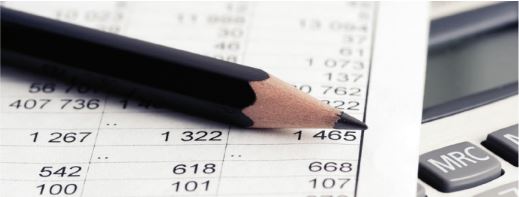As we enter a new year, and in this time of resolutions, why not resolve to take stock of your financial inventory? With over $1.8 billion in unclaimed bank accounts across Canada, the amount of assets that have been simply forgotten over time remains astounding.1 This is just one reason why having a financial inventory may be valuable. More importantly, if an unexpected event were to happen tomorrow, would you have important financial documents at your fingertips or would others know where to get that information and how to handle your finances?
While we often suggest that a financial inventory be created as part of your estate plan, having this inventory can also be invaluable in the event of:
• Damage to your home, such as a fire, flood or natural disaster;
• Separation or divorce;
• Incapacity or illness of you or your spouse/partner; or
• Theft.
What Is in Your Financial Inventory?
Putting together an initial inventory can be a time-consuming activity, but once it is created it can more easily be maintained. You will need to gather all of the information and documentation about your finances. In the process, you may also determine that there are areas that can be streamlined to simplify your finances, such as consolidating or eliminating rarely used or duplicate accounts.
Your financial inventory should include all assets and debts. Assets include bank savings and chequing accounts; brokerage, investment and other financial accounts; retirement accounts, including employer retirement accounts or pension accounts; education savings accounts; real estate holdings; and insurance policies, including health, home, life, car, disability and long-term care. Debts may include credit card accounts, mortgage accounts and other personal loans. The inventory should also include copies of legal documents such as a Will, powers of attorney, trust deeds/agreements and domestic contracts or separation/divorce agreements.
Other documents include title/deeds, business agreements, as well as a list of any valuable property such as artwork and jewelry. If you have assets in other countries, you should also include this information. Finally, the list should include the contact details of professionals involved in your finances, such as accountants, investment advisors, insurance agents and lawyers.

Within a detailed inventory, the list may also include contact information, account numbers, username and password information and other account access details. Other information such as social insurance numbers, automobile VIN and licensing details, cell phone providers and loyalty rewards programs may also be included. Given the abundance of sensitive information, you will need to ensure that this document is kept in a safe place that can be accessed by others in the event of an emergency. You may also wish to separate any account number/password information from the inventory in a different secure location from the document.
The Benefits: A Big Picture View…and No Lost Funds!
A financial inventory is important to ensure continuity in managing your finances in the event of unforeseen circumstances. However, it can also be valuable in providing a big picture view of your financial accounts and your overall financial situation. This can prevent the situation in which accounts are orphaned or forgotten over time. The inventory should be reviewed periodically and updated for significant changes to the accounts themselves, as well as for any changes to your personal circumstances resulting from major life events.
When was the last time you updated your financial inventory? Perhaps you can make this a priority in 2024. If you need support in getting started, please let us know.


